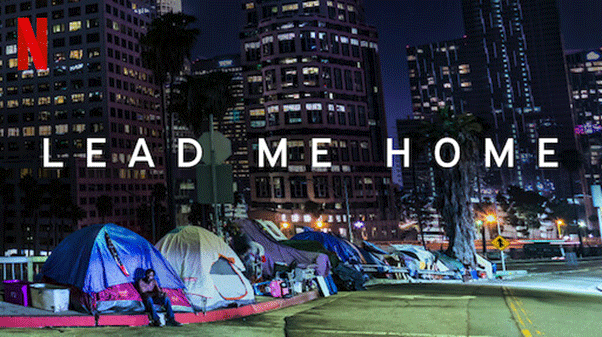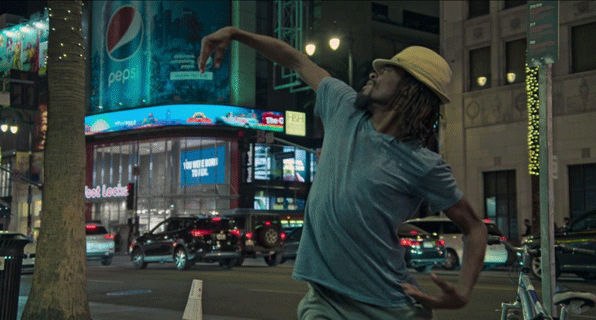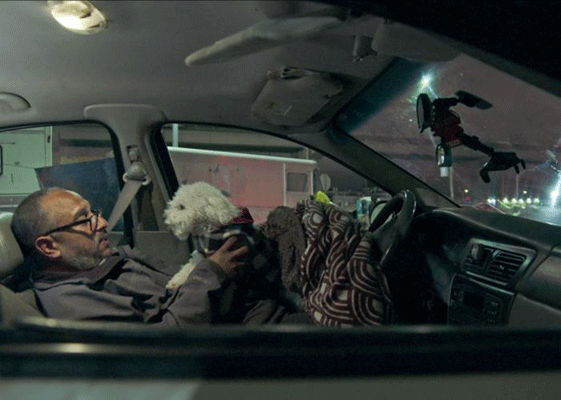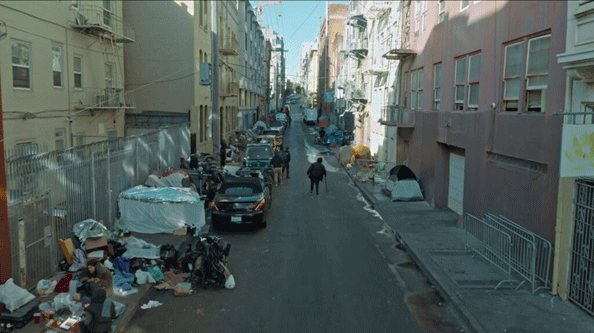Directed by Pedro Kos and Jon Shenk, Lead me Home is a short cinéma vérité documentary film about a pervading humanitarian housing crisis unfolding in cities on the West Coast of the United States of America. Shot over a duration of three years in the cities of Los Angeles, San Francisco and Seattle, the film juxtaposes privilege and pressing poverty through rare candid testimonials of the severity of street life, contemporary city struggles and urban survival.

Tackling the subject of homelessness, the film follows individuals who are part of a growing unsheltered American population leading lives on the streets, forced to make homes of tents, cars and crowded homeless shelters that are often dangerous or not necessarily fit for human habitation. Filming vulnerability assessments conducted by social workers, the film features LGBTQ youth who have been cast out, women who are victims of intimate partner (gender-based) violence and terrorism, and those folks grappling with substance abuse, disability, mental health issues and conviction, all of whom are clenched in the cycle of being housed and quickly unhoused.
“We see people on the streets in our own cities and immediately try to place blame on the people that are experiencing these problems. We tried to turn that on its head and really ask ourselves: What is going on here? Do we, as Americans, want to live in a society that has 500,000 to 600,000 people who don’t have a roof over their heads every night?” says Jon Shenk in an interview with Netflix Queue.

Despite housing security being both a basic human need and a human right, it has become a privilege, and homelessness has been criminalized.
A complex composite of staggering increases in costs of living, gentrification, stagnant wages and limited economic opportunies has not only inhibited upward social mobility, but has catapulted those already socially marginalized to the lowest rungs of the socio-economic hierarchy. Here, the film becomes a profound portrayal of acute precarity, a politically-induced condition of certain nations or racial and gendered populations that have had to forcibly succumb to differential and unequal exposure to inordinate state violence due to unequal distributions of wealth and state resources.

By humanizing and making visible the often invisibilized stories of those oscillating between chronic homelessness, hunger and demoralizing humiliation, Lead Me Home reminds us of the importance of achieving the United Nations Sustainable Development Goals of No Poverty, Zero Hunger, Decent Work and Economic Growth and Reduced Inequalities.
Lead Me Home attempts to generate awareness of the scale and scope of America’s epidemic of homelessness that is largely ignored, yet intimately located outside the homes of those who are privileged enough to afford a home. Stories of the vulnerability and resilience of the unhoused are cinematically weaved together in a manner that is thought-provoking, dignified and poetic.

Watch the trailer of Lead Me Home and learn more about the film here.
